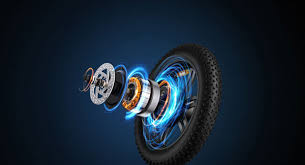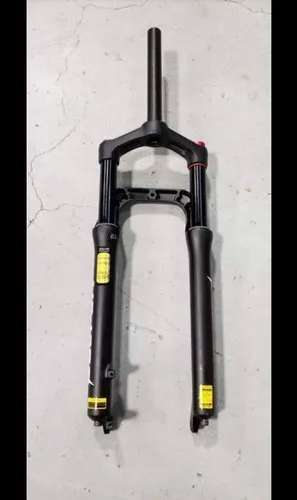Physical Address
60 Ekwema Cres, Layout 460281, Imo
Physical Address
60 Ekwema Cres, Layout 460281, Imo

As Nigerian cities grow, more people are looking for cost-effective and eco-friendly alternatives to move around. Electric bikes are fast becoming a favourite option because they’re cheaper to run, easier to maintain, and don’t rely on fuel.
With fuel prices on the rise, now is a great time to consider switching to this smart and efficient mode of transport. But, you might be asking; How much is an electric bike in Nigeria, and what should you consider before buying one?
If you’re thinking about getting a power bike or an electric bicycle in Nigeria, it’s good to know what options are available and how much they cost. To help you make the right choice, here’s a breakdown of different models in each category, along with their prices.
These figures are based on some of the most popular online marketplaces in Nigeria where buyers frequently check for deals.
| Electric Bicycle Model | Price (₦) | Source |
|---|---|---|
| Xiaomi Himo C26 Electric Bicycle | ₦400,000 – ₦450,000 | Jumia.com.ng |
| Ancheer Electric Mountain Bike | ₦350,000 – ₦400,000 | Konga.com |
| Hero Lectro Electric Bike | ₦300,000 – ₦350,000 | Jumia.com.ng |
| Nakto City Electric Bike | ₦250,000 – ₦300,000 | Jiji.ng |
| Lankeleisi G550 Electric Bike | ₦500,000 – ₦600,000 | Konga.com |
| FIIDO D2S Folding Electric Bike | ₦300,000 – ₦350,000 | Jumia.com.ng |
| Samebike LO26 Electric Mountain | ₦350,000 – ₦400,000 | Jiji.ng |
| RKS RX02 Electric Bicycle | ₦420,000 – ₦480,000 | Konga.com |
| Bezior X500 Electric Mountain Bike | ₦450,000 – ₦500,000 | Jumia.com.ng |
| Kemanner Electric Mountain Bike | ₦320,000 – ₦370,000 | Jiji.ng |
An electric bike, or e-bike, is a bicycle with a small motor that helps you move forward. This motor can work in two ways: it can give you a boost while you pedal (pedal-assist), or you can control it with a throttle to move without pedalling.
E-bikes come in different types, such as city bikes for everyday rides, mountain bikes for rough trails, and foldable models for easy storage. Each type is designed to suit different riding needs, making them a great choice for both short trips and longer journeys.
Read this: Spiro Launches Electric Bikes in Ogun State
Jumia, a popular online shopping site in Nigeria, sells different types of electric bikes to match various budgets and needs. Some of the more affordable models start at around ₦300,000, while high-end options with advanced features can go for over ₦1,450,000.
Since prices and stock often change, it is expedient you check Jumia for new deals and discounts.
When it comes to electric bikes, the price is influenced by several factors, including battery capacity, motor power, reliability, and overall design.
Here’s a breakdown
The battery is one of the most important parts of an electric bike because it determines how far you can ride before needing to recharge. The bigger the battery, the longer you can go with motor assistance.
Battery size is measured in watt-hours (Wh); the higher the number, the more energy it stores. Most electric bike batteries range from 250Wh to over 650Wh. Naturally, bikes with larger batteries cost more, but they also offer better performance for longer trips.
The motor is what gives the bike its “kick,” helping you accelerate, climb hills, and carry loads more easily. E-bike motors come in different power levels, usually between 250W and 750W. The higher the wattage, the more work the motor can do, but it also uses up battery power faster.
Not all electric bikes are built the same. Some brands, like Bosch, Shimano, or Bafang, design their batteries, motors, and controllers to work seamlessly together, making their bikes more reliable and easier to maintain.
Cheaper models might use mixed parts from different brands, which can lead to issues with performance and finding spare parts when repairs are needed.
Looks matter too! Some e-bikes have their electrical parts; battery, motor, and wiring neatly built into the bike frame for a sleek, modern look. These tend to be more expensive because they require advanced engineering.
On the other hand, bikes with external batteries and hub motors are usually more affordable because they are easier to manufacture.
Electric bikes come in different shapes, sizes, and power levels. Depending on your needs, here are the main things to look for:


The speed of an electric bike depends on its design and the rules in place. In Nigeria, most e-bikes are built to follow safety guidelines, which means they can’t go too fast.
On average, these bikes can travel between 32 to 45 kilometers per hour (20 to 28 miles per hour). However, it’s always important to follow traffic rules and ride safely to avoid accidents and keep the roads safe for everyone.
Deciding between an electric bike and a petrol-powered motorcycle comes down to a few key things: cost, upkeep, how it affects the environment, and what works best for your lifestyle.
Electric bikes are cheaper to run than petrol motorcycles. They have fewer parts that can break down, so they don’t need as much fixing. You also won’t have to worry about oil changes. Charging an e-bike is much more affordable than buying fuel, which can save you a lot of money in the long run.
E-bikes are better for the environment because they don’t release harmful gases like petrol bikes do. By choosing an electric bike, you’re helping reduce air pollution and supporting a cleaner, healthier planet.
Petrol bikes are faster and can travel longer distances, but e-bikes are great for city commuting and short trips. They make riding easier with pedal assistance, so you don’t have to put in as much effort. Plus, e-bikes can use bike lanes, helping you avoid heavy traffic and get to your destination faster.
Jiji.ng is one of Nigeria’s biggest online marketplaces where people buy and sell all kinds of products, including electric bikes. You can find a wide range of options, from budget-friendly e-bikes to high-end models with advanced features. Prices vary based on the seller, bike condition, and specifications.
If you’re planning to buy an e-bike on Jiji, here are some smart tips to follow:
Related: At ₦1160 per Litre, there is High Consideration for EV Alternative to Petrol in Nigeria
Charging times vary depending on the battery capacity and charger specifications. On average, it takes between 3 to 6 hours to fully charge an e-bike battery.
The range depends on factors like battery capacity, terrain, rider weight, and level of assistance used. Typically, e-bikes can travel between 30 to 100 kilometers on a single charge.
Yes, electric bikes are legal in Nigeria. However, riders must adhere to local traffic laws and regulations, including wearing helmets and obeying traffic signals.
Most electric bikes are designed to be water-resistant and can be ridden in light rain. However, it’s advisable to avoid heavy downpours and ensure the bike is dried properly after exposure to moisture.
Electric bikes are changing the way people move around in Nigeria. They are a cleaner and more convenient alternative to fuel-powered motorcycles. Interestingly, there’s an electric bike that suits your budget and lifestyle. These bikes work well on busy city roads and even on rougher rural paths, making them a great choice for different kinds of riders.
If you found this article useful, we’d love to hear from you! Drop your thoughts in the comments below. And don’t forget to connect with us on our social media channels for more tech tips and valuable content. Join our community and stay updated on all the latest insights!